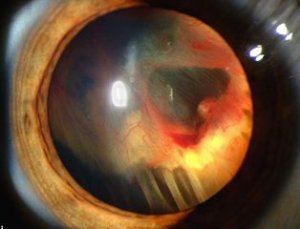How Much Does Retinal Detachment Surgery Cost
There is nothing worse than waking up to complete darkness—that is, not being able to see anything. This is what some people diagnosed with retinal detachment experience at some point in their life. Whether you are experiencing this problem or just curious about retina surgery rates; this is the right place to look for answers. Retinal detachment surgery costs around $5,000 to $10,000. With the help of insurance, detached retina surgery cost may fall to as low as $100 to $350.
If your retinal detachment surgery is not covered by your insurance or if you do not have a health insurance at all, there are also many hospitals, St. Joseph’s Hospital for instance, that offer 30% discounts for uninsured or cash-paying patients.
What’s Retinal Detachment
Retinal detachment is a condition of the eye in which the retina separates from the layer underneath and becomes  detached from its normal position. If not treated immediately, this condition may threaten the sight of the person and lead to blindness. Retinal detachment surgeries will typically include:
detached from its normal position. If not treated immediately, this condition may threaten the sight of the person and lead to blindness. Retinal detachment surgeries will typically include:
- Laser surgeries to repair cause of separation
- Scleral buckle to allow retinal reattachment
- Cryopexy to cause a scar development that will hold the retina in place
- Pneumatic Retinoplexy to use tiny gas bubble accompanied by laser surgery to put the retina back into place and ensure that it stays in its correct position permanently
Causes of Retinal Detachment
The causes of having a detached retina is according to its types. The following are the 3 different types of retinal detachment and its causes:
- Rhehmatogenous Retinal Detachment
This is the most common type wherein you have tears and holes in your retina. The tears and holes will allow fluid from within the eye to leak through the opening and get behind the retina. With that, the fluid will cause the retina to separate from a membrane that is in charge with oxygen and nutrients. The pressure of the fluid will then push the retina away from the epithelium causing the detachment.
- Tractional Retinal Detachment
This type occurs when scar tissue on the retina’s surface contracts. This contraction causes the retina to pull away from the back of the eye. Tractional retinal detachment is a less common type as it typically affects people with diabetes.
- Exudative Retinal Detachment
As for this type of retinal detachment, the retina does not actually have any tears or holes. Retinal diseases such as that of Coat’s disease or others may be behind the retinal detachment.
Symptoms of Retinal Detachment
How do we know if we should be concerned with retina surgery rates? Fortunately, there are ways to know as there are several signs and symptoms. Below are a list of the common ones.
- Very brief flashes of light in the peripheral part of the vision
- Sudden and excessive increase of floaters
- Presence of ring of floaters or hairs to the temporal side of the vision
- Presence of blind spots in the field of vision
- Loss of central vision
- Sudden appearance of straight lines as curved lines
- Sudden onset of a blurry vision
Risk of Retinal Detachment
Even if we do not have the retinal detachment condition, we still have to be careful as there some of us that are at a higher risk of retinal detachment. Perhaps if we are included as the unlucky ones, we better check out detached retina surgery costs, just in case. Keep in mind that a higher risk does not automatically mean that we will acquire this condition as there may be ways to mitigate these risks which will be discussed later on.
- Older adults with posterior vitreous detachment
- People above 40
- Having a history of retinal detachment in the family
- Having prior history of retinal detachment
- Trauma to the eye
- Diabetes
- Complications from a cataract surgery
- Having prior eye surgeries
- Having eye problems such as nearsightedness
Ways to Mitigate Risks of Retinal Detachment
If it is not yet too late, there are ways to minimize our risk of experiencing retinal detachment. Perhaps, following these ways may help us avoid looking into retinal detachment surgery costs. Keep in mind that the following does not guarantee you to be 100% free from acquiring retinal detachment problems but will, however, minimize your chances.
- Make sure you have routine eye exams so that your doctor can immediately detect signs or symptoms in the event that you have a retinal detachment
- Eye trauma due to eye injuries may contribute to retinal detachment. Avoiding such injuries may reduce the risk. Below are ways as to avoid eye injuries:
- Wear safety glasses when working with power tools that might cause small objects flying into your eye
- Wear sport glasses during any sport activity.
- Use safety gears and measures when using firearms or fireworks.
- If you have diabetes, keep your blood sugar levels under control since, as previously mentioned, diabetes may cause tractional retinal detachment. Getting in control with your diabetes may be a big help.
Checking out retina surgery rates or any surgery rate is, indeed, quite stressful. Luckily, detached retina surgery costs are covered by insurance. However, with or without insurance discount, we cannot deny that at the end of the day, retinal detachment surgery costs will not anymore matter as much as making sure you do not lose your sight.












